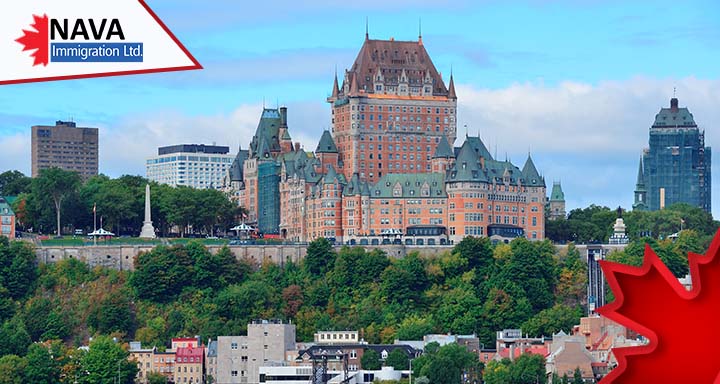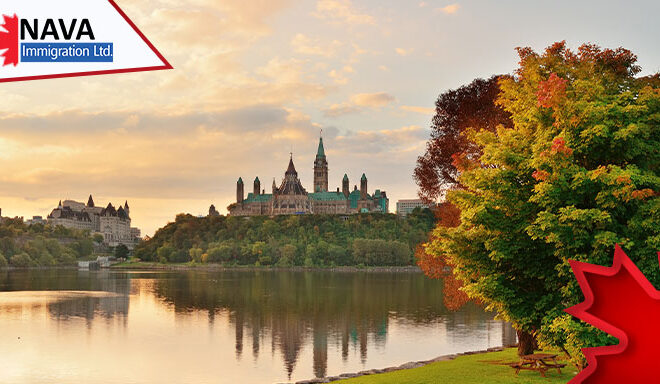Premiers of Canada desire additional authority over immigration, similar to Quebec.
This week, the premiers of Canadian provinces assembled in Winnipeg to discuss the common objectives.
The leaders of the provinces emphasized the areas that need quick action. The following are the three areas among them which are closely related to immigration.
- Developing a strong labor force
- Enhancing healthcare services
- Managing Housing needs
Since 2003, the meeting of the premiers has been taking place on an annual basis as the council of the Federation to support and strengthen interprovincial and interterritorial cooperation and foster relation between federal and provincial governments.
Areas Requiring Attention
This section discusses the three areas that need quick actions in detail and covers what premiers feel about them.
Developing a robust labor force
The leaders stated that the provinces and territories are capable of satisfying the needs and demands of their own labor market and rising economies. They further mention that the efforts include hiring international workers, skills training, and credential recognition.
- The premiers also asked the federal government to help them fill the skills gaps via immigration in the following ways.
- They asked them to speed up the current immigration pathway and accelerate the application processing to meet the particular market needs. It also includes the issuing of the needed work permit;
- They suggested increasing the percentage of provincial and territorial nominee programs in the economic immigrant selections;
- They urged increasing the provinces’ and territories’ responsibility and involvement in the TFWP or Temporary Foreign Worker Program; and
- They also asked the government to make certain that the development of new immigration pathways is done in collaboration with the provinces and territories in order to harmonize it with the local labor market needs.
The premiers of the province also requested the federal government to enter into agreements with the province, which are similar to the Canada-Quebec Accord.
This agreement gives Quebec to have exclusive authority and responsibility for immigration to the province and the selection of all economic immigrants.
Presently, except for Quebec and Nunavut, all the provinces and territories maintain their own PNPs through which they are allocated the total number of nominations they can issue to the candidates who they believe are capable of supporting the provincial economy and labor force.
Healthcare
According to the announcement of the provinces’ leaders, they are taking additional steps to boost Canada’s access to qualified healthcare experts. Both provincial and territorial governments share the responsibility of Healthcare, and it is their duty to hire, train and retain skilled Healthcare experts within their respective provinces and territories.
They further mention that they are also taking extra measures for internationally-educated health professionals to expedite credential recognition and licensure procedures.
In addition, the provinces highlighted that by submitting petitions together to the federal government, they could easily raise funding, recruit additional healthcare professionals and enhance the
healthcare system in Canada. They also stated that this strategy had been proven to be successful in the past, as after the meeting held the last year, provinces obtained an increase in the funding for Healthcare which was $196 billion over the subsequent decade. It also includes $46.2 billion in new funding.
Inexpensive Housing
By the end of 2025, Canada seeks to admit 500,000 new Permanent Residents every year. However, as per the current scenario, affordable housing in Canada is in scarce supply.
The provincial leaders have proposed various suggestions which can help make housing more affordable in the Country. The following are the suggested measures:
- They suggested raising their financial dedication to housing. This includes support services, capital funding, operational funding as well as incentives to encourage new constructions.
- They suggested making certain that rather than municipalities, the funding streams through the provinces and territories.
- They suggested that the programs must be flexible, adequately funded, and satisfy the priorities and unique necessities of the province and territories.
- They suggested simplifying the approval processes and program management that occur under the Canada Mortgage and Housing Corporation; and
- Lastly, they suggested making minor changes to the tax policies to encourage the development of new housing, particularly the construction, and retention of purposely built rental properties.
The premiers stated that these modifications are essential to managing the rising living cost in Canada. It’s also notable that the interest rates in Canada increased by .25 basis points to 5% overnight on July 12. According to the Bank of Canada, the rate increases are crucial to impede expenditure and decrease inflation.
When the interest rates in Canada increase, for banks, it becomes more costlier to borrow money from other financial organizations such as the Bank of Canada. Also, the cost is transferred to the individuals who require to get mortgages or other loans.
Improved Programs for Displaced Ukrainians
Besides all the measures, the Canadian Premiers also announced that the last application date for the Canada Ukraine Authorization for Emergency Travel (CUAET) program is July 15. In addition, they stated that in Canada, the federal government had not provided adequate funds or help for displaced Ukrainians and has asked for an improved support program with a new financial partnership.





